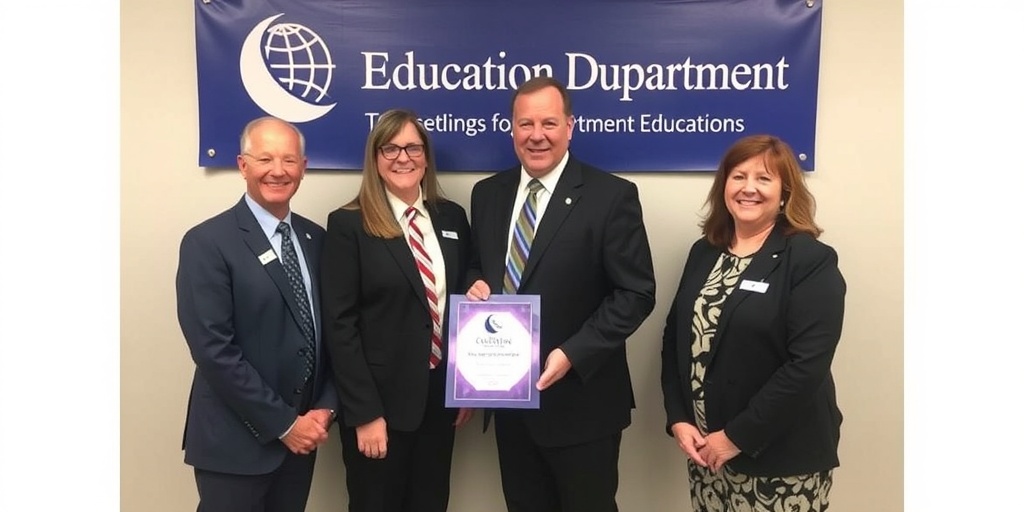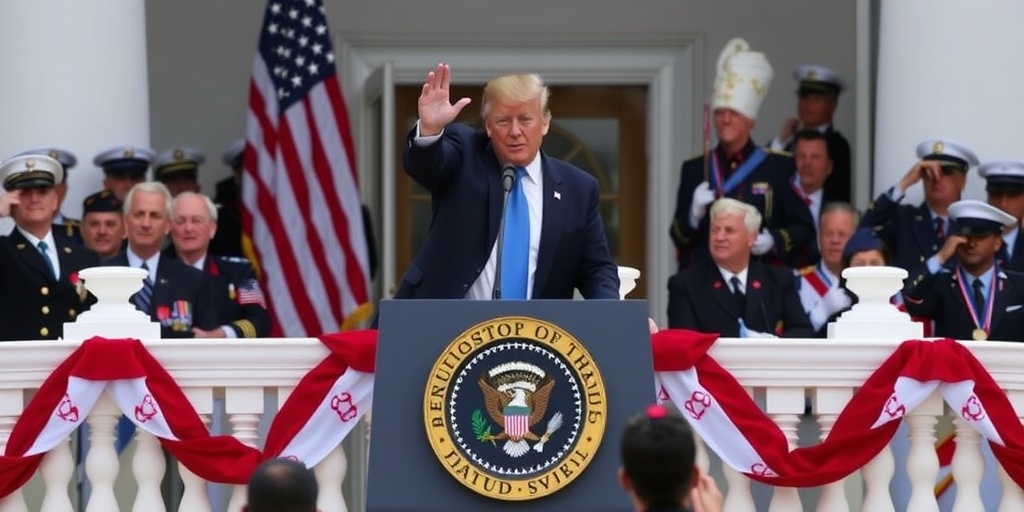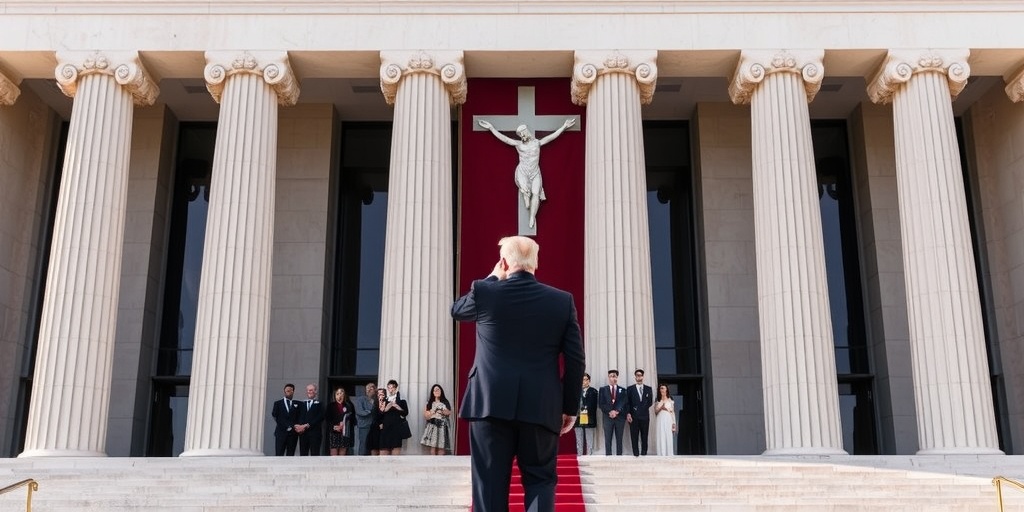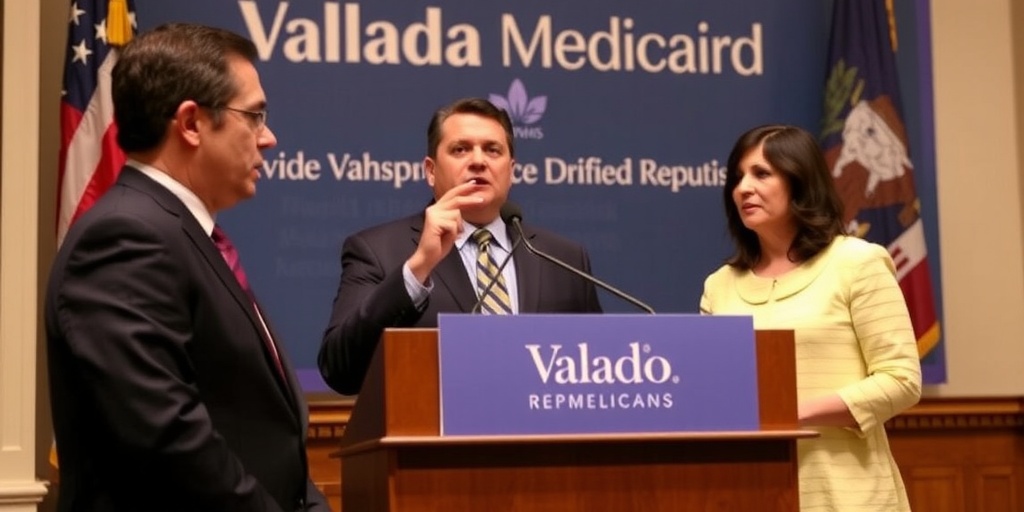Now Reading: Tarrio Arrested for Assaulting Capitol Protester
-
01
Tarrio Arrested for Assaulting Capitol Protester
Tarrio Arrested for Assaulting Capitol Protester
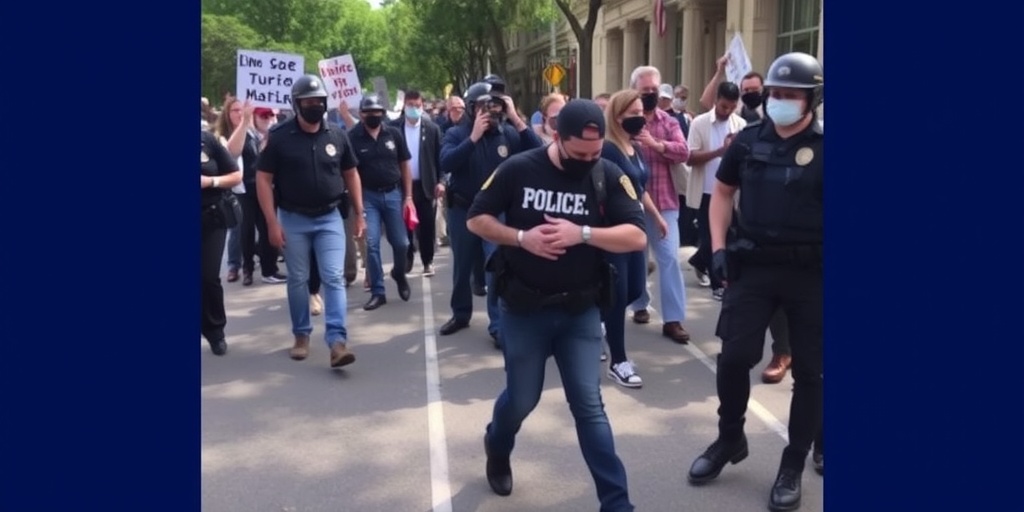
Former Proud Boys Leader Enrique Tarrio Arrested Again Following Trump’s Pardon
Enrique Tarrio, the former leader of the Proud Boys, found himself in handcuffs once more just one month after receiving a pardon from President Trump for his involvement in the January 6, 2021, Capitol riot. This incident occurred during a chaotic news conference held outside the Capitol last Friday, where tensions flared between Tarrio and protesters.
Arriving at the event, Tarrio aimed to present his narrative regarding the events of January 6. However, he was met with resistance from a protester who persistently disrupted the proceedings by blowing a whistle and hurling insults. Media reports indicate that during the confrontation, Tarrio swiped at the protester in an attempt to silence her, ultimately striking her arm as she raised her cellphone close to his face to record the incident. This altercation prompted the Capitol Police to intervene, leading to Tarrio’s arrest on charges of simple assault.
The irony of Tarrio, just days removed from being pardoned for his previous convictions, being taken into custody in the same vicinity that witnessed the violence he is associated with, was not lost on observers. The Capitol Police, who were present during the January 6 unrest and experienced the brunt of the mob’s aggression that day, were the same officers responsible for his arrest on this occasion. This raises questions about the ongoing implications of his actions and the messages he and his associates continue to convey.
Prior to his pardon, Tarrio had been serving a substantial 22-year prison sentence following his conviction on seditious conspiracy charges. The trial lasted several weeks in Washington, D.C., and resulted in significant penalties for not only Tarrio but also for his four co-defendants: Joseph Biggs, Ethan Nordean, Zachary Rehl, and Dominic Pezzola. These men were also present at the news conference, although they notably did not engage in confrontations with the protesters.
The event itself, which Tarrio had actively promoted while attending the Conservative Political Action Conference (CPAC) in Washington, was supposed to provide an opportunity for him and his fellow Proud Boys to share their version of events surrounding January 6. However, rather than being a peaceful demonstration, the atmosphere became charged and tumultuous as attendees clashed with counter-protesters.
In their remarks, Tarrio and his associates sought to downplay their actions from that fateful day. They deflected blame onto law enforcement agencies, insisting that their collective prosecution was unfair. During the press conference, an intriguing exchange occurred when Pezzola, who gained notoriety for using a stolen police riot shield to break a Capitol window, was asked to reflect on whether such actions contributed to the chaos at the Capitol. Pezzola vehemently disagreed, stating, “Escalated? No. It was escalated by the police,” reflecting the group’s ongoing effort to reposition themselves as victims rather than perpetrators.
This series of events raises broader questions about accountability and the narratives surrounding the January 6 insurrection. While members of the Proud Boys, including Tarrio, attempt to reshape their stories, many Americans continue to grapple with the repercussions of that day. The division in public opinion is stark, reflecting the ongoing polarization in American society.
As Tarrio faces new legal troubles, it remains to be seen how this latest arrest will influence both his future and the broader far-right movement. His experience illustrates how the struggle over the narrative of January 6 is far from resolved, as different factions within the political landscape continue to vie for attention and legitimacy.
The clash outside the Capitol reinforces the reality that, despite his pardon, the consequences of Tarrio’s actions—and those of others involved in the Capitol riot—are far from over. As this saga unfolds, it serves as a reminder of the complexities of justice and the narratives that shape American political discourse in the aftermath of a deeply contentious event.
Stay Informed With the Latest & Most Important News
Previous Post
Next Post
-
 01New technology breakthrough has everyone talking right now
01New technology breakthrough has everyone talking right now -
 02Unbelievable life hack everyone needs to try today
02Unbelievable life hack everyone needs to try today -
 03Fascinating discovery found buried deep beneath the ocean
03Fascinating discovery found buried deep beneath the ocean -
 04Man invents genius device that solves everyday problems
04Man invents genius device that solves everyday problems -
 05Shocking discovery that changes what we know forever
05Shocking discovery that changes what we know forever -
 06Internet goes wild over celebrity’s unexpected fashion choice
06Internet goes wild over celebrity’s unexpected fashion choice -
 07Rare animal sighting stuns scientists and wildlife lovers
07Rare animal sighting stuns scientists and wildlife lovers













